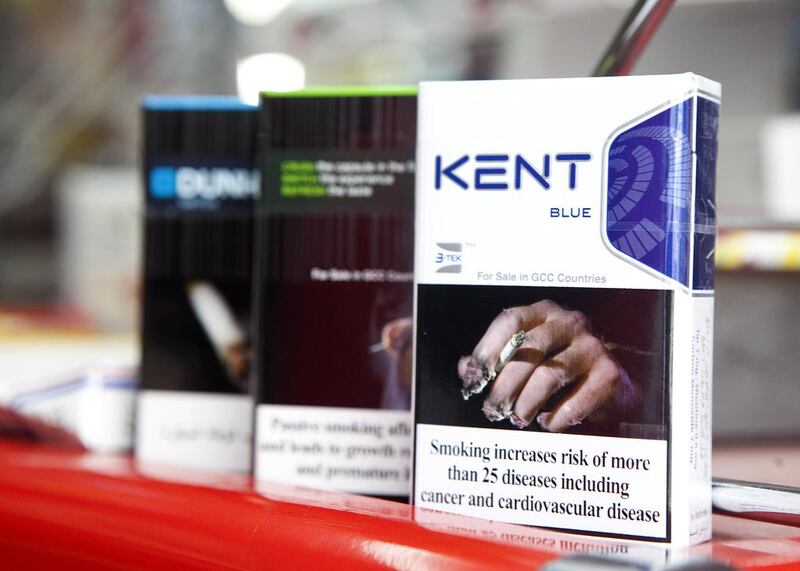ABU DHABI // While the country is making strides in its efforts to reduce tobacco use, further measures are required, public health experts said.
The claims were made on Wednesday at the World Conference on Tobacco or Health in Abu Dhabi.
Dr Fatimah El Awa, a regional adviser on tobacco control for the World Health Organisation, said: “The legislation adopted by the UAE is pioneering for the region. Implementation is meeting legislation unlike other countries in the region.”
She cited measures such as graphic warnings on packages and the ban on smoking in cars when children were passengers as examples.
“But we are encouraging the UAE to do more. A total ban on smoking in public spaces has not been achieved yet. We still have designated areas,” she said.
Dr El Awa said the WHO was working with the Government on the issue.
“The UAE has started with declaring Sharjah tobacco-free, especially for water pipes. This momentum needs to be used to go forward to make the UAE one of the model countries in the world.”
The UAE signed the WHO’s framework convention on tobacco control in 2005, but challenges remain. Dr El Awa said a major problem was that the GCC implemented only a customs tariff on tobacco, without levying any taxes.
“We are recommending the tax be above 75 per cent of the pack price,” she said.
Dr Wedad Al Maidoor, head of the tobacco control committee at the Ministry of Health, said a range of measures to curb smoking was on its way.
“We need support and we hope to have plain packaging introduced soon. Reducing tobacco use to 15 per cent is our goal,” he said. “In Turkey, restaurants are smoke-free. We have not reached that level yet.”
The fact that there are no recent statistics about the number of adult smokers was part of the problem, said Dr Al Maidoor.
“We require this. We have been working on the Global Adult Tobacco Survey since 2011 but unfortunately, the census is not updated. We will overcome this obstacle soon,” he said.
“There is good progress made in the UAE but the challenge is that there are expatriates coming in all the time and some of them are smokers.”
Working to make public places smoke free, giving more help to smokers who want to quit and having a good monitoring system were vital, said Dr Al Maidoor.
“Not all are applied perfectly and in different emirates implementation is different,” he said.
Dr Farida Al Hosani, director of public health for Health Authority Abu Dhabi, said a multi-agency committee was formed to implement a 2009 ban on smoking.
She said in Abu Dhabi in 2013, 80 cafes selling shisha were closed.
Sheikh Nahyan bin Mubarak, Minister of Culture, Youth and Community Development, speaking at the conference, pointed out that smoking was still considered a social activity.
“We have often gathered together to smoke cigarettes or even shisha to talk. I notice today that people now smoke outside smoke-free buildings and congregate as though the conversation may be as important as smoking,” he said.
“If the health of our communities worldwide is going to improve, we must convince each young man and woman that they will almost surely suffer sooner or later from heart disease, cancer, diabetes or chronic respiratory disease. In my opinion, this conference will be successful if it advances civilisation firmly towards that educational outcome.”
arizvi2@thenational.ae






